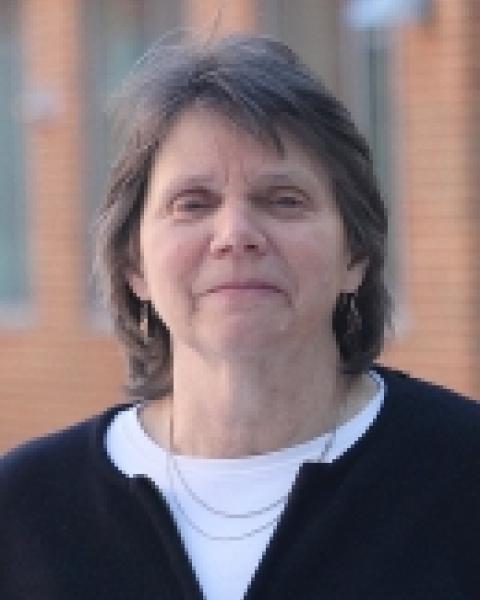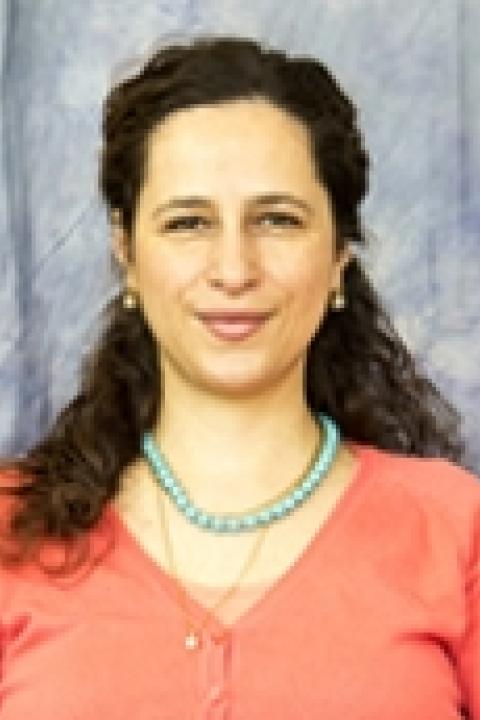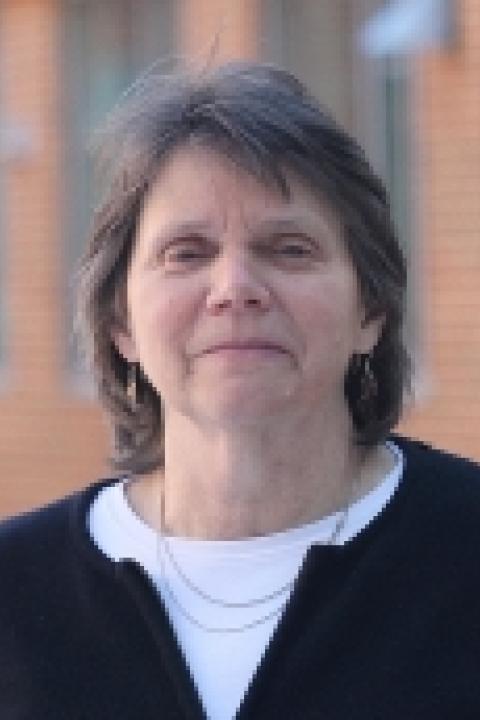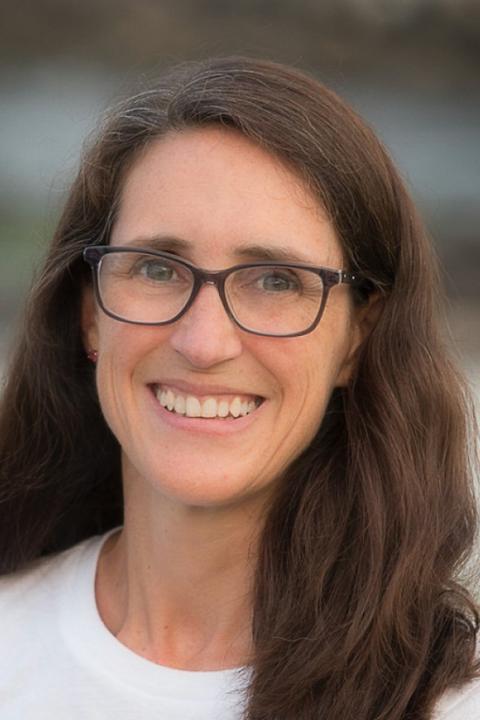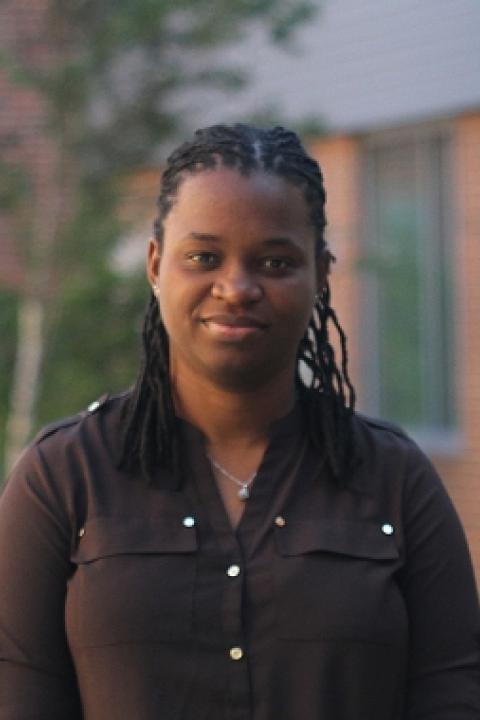The Mathematics Education major at UNH is tailored for aspiring math teachers, offering a robust foundation in mathematics paired with research-based teaching practices and insights into student learning. Here, you’ll benefit from direct collaboration between the mathematics and education departments and have the opportunity to enter the Accelerated Master’s Program, leading to New Hampshire teacher certification in just five years. You’ll engage with active professionals in mathematics, statistics, and education, gaining expertise in higher-level mathematics and teaching practices. Small classes and diverse field-based experiences enhance your preparation for careers in teaching as well as curriculum development, educational software, and educational consulting.
What is the mathematics education major?
This program is tailored to students who want to teach mathematics at the middle or high school level. It provides a strong foundation in mathematics with current pedagogical approaches and insightful study of student learning. Mathematics education students have the advantage of working directly faculty in the mathematics department and coordinating with the education department to obtain New Hampshire teacher certification.
Why study mathematics education at UNH?
You’ll work alongside accomplished mathematics educators, mathematicians, and statisticians, who are professionally active. You’ll gain an understanding of higher-level mathematics, the mathematics taught in the middle and high school classrooms, and the process of teaching mathematics. You’ll have the opportunity to pursue an accelerated master’s degree leading to teacher certification in just five years. You’ll enjoy many small, specialized classes and a variety of field-based experiences. Our professors have won prestigious honors, including a Grammy Award and a MacArthur “genius” grant. This department has produced many winners of the prestigious Department of Defense SMART Scholarship.
Potential careers
- Curriculum supervisor/developer
- Educational software developer
- Mathematics education consultant
- Mathematics educator in government/research/academia
- Mathematics teacher
- Mathematics textbook writer/editor/publisher
Curriculum & Requirements
This professional degree program prepares students for teaching mathematics at the middle or high school level. The program is coordinated with the education department's teacher certification programs. Students may complete the degree requirements with full teacher certification in either four or five years.
Students electing the four-year option leading to certification must plan for one semester of student teaching in their senior year; this requires careful planning with your program adviser to accommodate the scheduling of required MATH courses.
The five-year program includes a year-long teaching internship in the fifth year. The internship requires admission into a UNH Department of Education graduate program that leads to certification. See Education, College of Liberal Arts.
Sample Degree Plan
This sample degree plan serves as a general guide; students collaborate with their academic advisor to develop a personalized degree plan to meet their academic goals and program requirements.
Middle Level Pathway
| First Year | ||
|---|---|---|
| Fall | Credits | |
| MATH 425 | Calculus I | 4 |
| ENGL 401 | First-Year Writing | 4 |
| Discovery Course | 4 | |
| Inquiry Course | 4 | |
| MATH 400 | Freshman Seminar | 1 |
| Credits | 17 | |
| Spring | ||
| MATH 426 | Calculus II | 4 |
| MATH 445 or CS 410P or CS 410C | Mathematics and Applications with MATLAB or Introduction to Scientific Programming/Python or Introduction to Scientific Programming/C | 4 |
| Discovery Course | 4 | |
| Discovery Course | 4 | |
| Credits | 16 | |
| Second Year | ||
| Fall | ||
| MATH 531 | Mathematical Proof | 4 |
| MATH 539 or MATH 644 | Introduction to Statistical Analysis or Statistics for Engineers and Scientists | 4 |
| EDUC 500 | Exploring Teaching | 4 |
| Discovery Course | 4 | |
| Credits | 16 | |
| Spring | ||
| MATH 601 | Exploring Mathematics for Teachers I | 4 |
| MATH 545 or MATH 645 or MATH 525 | Introduction to Linear Algebra or Linear Algebra for Applications or Linearity I | 4 |
| MATH 790 | Historical Foundations of Mathematics | 4 |
| Discovery Course | 4 | |
| Credits | 16 | |
| Third Year | ||
| Fall | ||
| MATH 700 | Introduction to Mathematics Education | 4 |
| MATH 760 | Geometry | 4 |
| Discovery Course | 4 | |
| Elective Course | 4 | |
| Credits | 16 | |
| Spring | ||
| MATH 624 | Analysis of Secondary School Mathematics A (Number Systems & Functions) | 4 |
| MATH 703 or MATH 709 | Teaching of Mathematics in Grades K-6 or Teaching of Mathematics in Grades 6-12 | 4 |
| EDUC 605 | Educational Perspectives in Critical Times | 4 |
| Elective Course | 4 | |
| Credits | 16 | |
| Fourth Year | ||
| Fall | ||
| MATH 626 | Analysis of Secondary School Mathematics B (Geometry, Statistics, & Probability) | 4 |
| MATH elective | 4 | |
| Discovery Course | 4 | |
| Elective Course | 4 | |
| Credits | 16 | |
| Spring | ||
| MATH 797 | Senior Seminar | 4 |
| EDUC 701 | Human Development & Learning: Cultural Perspectives | 4 |
| Elective Course | 4 | |
| Elective Course | 4 | |
| Credits | 16 | |
| Total Credits | 129 | |
Upper Level Pathway
| First Year | ||
|---|---|---|
| Fall | Credits | |
| MATH 425 | Calculus I | 4 |
| ENGL 401 | First-Year Writing | 4 |
| Discovery Course | 4 | |
| Inquiry Course | 4 | |
| MATH 400 | Freshman Seminar | 1 |
| Credits | 17 | |
| Spring | ||
| MATH 426 | Calculus II | 4 |
| MATH 445 or CS 410P or CS 410C | Mathematics and Applications with MATLAB or Introduction to Scientific Programming/Python or Introduction to Scientific Programming/C | 4 |
| Discovery Course | 4 | |
| Discovery Course | 4 | |
| Credits | 16 | |
| Second Year | ||
| Fall | ||
| MATH 531 | Mathematical Proof | 4 |
| MATH 539 or MATH 644 | Introduction to Statistical Analysis or Statistics for Engineers and Scientists | 4 |
| EDUC 500 | Exploring Teaching | 4 |
| Discovery Course | 4 | |
| Credits | 16 | |
| Spring | ||
| MATH 545 or MATH 645 or MATH 525 | Introduction to Linear Algebra or Linear Algebra for Applications or Linearity I | 4 |
| MATH 790 | Historical Foundations of Mathematics | 4 |
| Discovery Course | 4 | |
| Elective Course | 4 | |
| Credits | 16 | |
| Third Year | ||
| Fall | ||
| MATH 700 | Introduction to Mathematics Education | 4 |
| MATH 760 | Geometry | 4 |
| Discovery Course | 4 | |
| Elective Course | 4 | |
| Credits | 16 | |
| Spring | ||
| MATH 624 | Analysis of Secondary School Mathematics A (Number Systems & Functions) | 4 |
| MATH 709 | Teaching of Mathematics in Grades 6-12 | 4 |
| EDUC 605 | Educational Perspectives in Critical Times | 4 |
| Elective Course | 4 | |
| Credits | 16 | |
| Fourth Year | ||
| Fall | ||
| MATH 626 | Analysis of Secondary School Mathematics B (Geometry, Statistics, & Probability) | 4 |
| MATH 761 | Abstract Algebra | 4 |
| Elective Course | 4 | |
| Elective Course | 4 | |
| Credits | 16 | |
| Spring | ||
| MATH 797 | Senior Seminar | 4 |
| EDUC 701 | Human Development & Learning: Cultural Perspectives | 4 |
| MATH Elective | 4 | |
| Elective Course | 4 | |
| Credits | 16 | |
| Total Credits | 129 | |
Degree Requirements
All Major, Option and Elective Requirements as indicated.
*Major GPA requirements as indicated.
Major Requirements
- Requirements for admission to student teaching include receiving credit for EDUC 500 and a minimum cumulative 2.8 GPA.
- In all courses used to satisfy the requirements for its major programs, the Department of Mathematics and Statistics requires that a student earn a grade of C- or better and have an overall grade-point average of at least 2.00 in these courses.
- For teacher licensure a grade of B- or better is required in all Education courses.
| Code | Title | Credits |
|---|---|---|
| Required MATH Courses | ||
| MATH 425 | Calculus I | 4 |
| MATH 426 | Calculus II | 4 |
| MATH 445 | Mathematics and Applications with MATLAB | 4 |
| or CS 410P | Introduction to Scientific Programming/Python | |
| or CS 410C | Introduction to Scientific Programming/C | |
| MATH 531 | Mathematical Proof | 4 |
| MATH 539 | Introduction to Statistical Analysis | 4 |
| or MATH 644 | Statistics for Engineers and Scientists | |
| MATH 545 | Introduction to Linear Algebra | 4 |
| or MATH 645 | Linear Algebra for Applications | |
| or MATH 525 | Linearity I | |
| MATH 624 | Analysis of Secondary School Mathematics A (Number Systems & Functions) | 4 |
| MATH 626 | Analysis of Secondary School Mathematics B (Geometry, Statistics, & Probability) | 4 |
| MATH 700 | Introduction to Mathematics Education | 4 |
| MATH 760 | Geometry | 4 |
| MATH 790 | Historical Foundations of Mathematics | 4 |
| Capstone | ||
| Select one of the following: | ||
MATH 797 | Senior Seminar | |
MATH 799 | Senior Thesis | |
| Required EDUC Courses | ||
| EDUC 500 | Exploring Teaching | 4 |
| EDUC 605 | Educational Perspectives in Critical Times | 4 |
| EDUC 701 | Human Development & Learning: Cultural Perspectives | 4 |
| Middle Level Pathway Requirements | ||
| MATH 601 | Exploring Mathematics for Teachers I | 4 |
| MATH 703 | Teaching of Mathematics in Grades K-6 | 4 |
| or MATH 709 | Teaching of Mathematics in Grades 6-12 | |
| Select one MATH elective from the following, chosen in consultation with academic advisor: | 4 | |
MATH 527 | Differential Equations with Linear Algebra 1 | |
MATH 528 | Multidimensional Calculus 1 | |
MATH 761 | Abstract Algebra | |
MATH 767 | One-Dimensional Real Analysis | |
MATH 770 | Foundations of Number Theory | |
MATH 772 | Combinatorics | |
| Upper Level Pathway Requirements | ||
| MATH 709 | Teaching of Mathematics in Grades 6-12 | 4 |
| MATH 761 | Abstract Algebra | 4 |
| Select one MATH elective from the following, chosen in consultation with academic advisor: | 4 | |
MATH 527 | Differential Equations with Linear Algebra 1 | |
MATH 528 | Multidimensional Calculus 1 | |
MATH 767 | One-Dimensional Real Analysis | |
MATH 770 | Foundations of Number Theory | |
MATH 772 | Combinatorics | |
- 1
The full Linearity sequence, MATH 525 Linearity I and MATH 526 Linearity II, may be used to replace MATH 527 Differential Equations with Linear Algebra, MATH 528 Multidimensional Calculus, and MATH 545 Introduction to Linear Algebra, MATH 645 Linear Algebra for Applications.
Note: EDUC 751B Methods of Inclusive Secondary Education: Literacies, Learning, and Transitions is a requirement for certification and may be taken as an undergraduate.
Program Learning Outcomes
Mathematics Concepts, Practices, and Curriculum. Well-prepared beginning teachers of mathematics:
- Demonstrate robust knowledge of mathematical and statistical concepts that underlie what they encounter in teaching of K-8 or secondary mathematics.
- Engage in appropriate mathematical and statistical practices, and use technological tools to solve mathematical problems, and incorporate educational technology in their teaching.
- Analyze and interpret mathematical curricula, assessments, and standards documents.
- Analyze and interpret students’ mathematical work.
Pedagogical Knowledge and Practices for Teaching Mathematics. Well-prepared beginning teachers of mathematics:
- Demonstrate strong foundations of pedagogical knowledge, and effective and equitable mathematics teaching practices.
- Construct instructional explanations, develop tasks, lesson plans and unit plans, that advance students’ mathematical understanding.
- Recognize common patterns of student thinking related to particular mathematical topics, and articulate ways of supporting students’ mathematical thinking.
Productive dispositions. Well-prepared beginning teachers:
- Demonstrate positive and productive dispositions toward mathematics as a discipline, towards students as learners of mathematics and towards teaching mathematics in ways that support students’ sense making, understanding, and reasoning.
Professional Licensure/Certification Disclosures
The University of New Hampshire offers a number of academic programs designed to lead to professional licensure or certification in New Hampshire. However, completing a UNH degree/program does not guarantee professional licensure or certification. Eligibility may also depend on factors like years of work experience, professional examinations, passing a background check, and other criteria.
UNH does not guarantee that its professional licensure programs will satisfy the criteria of professional licensure boards in other states. Some states maintain different requirements for professional licensure or certification and requirements can change frequently. Federal regulations require the University to make public disclosure of certain information regarding professional licensure or certification programs, regardless of the modality the program is offered (i.e., in-person or online). The University provides guidance below but recommends students contact their state/territory licensing or certification board to ensure a program meets specific state/territory requirements.
Visit the Office of the Registrar's website for information about whether this program meets professional licensure requirements in your state.
Explore Program Details
Those interested in the Mathematics Education: Secondary Education Option major may also be interested in the following advanced degrees. Students in the program also have the opportunity to participate in the UNH accelerated master’s program.

